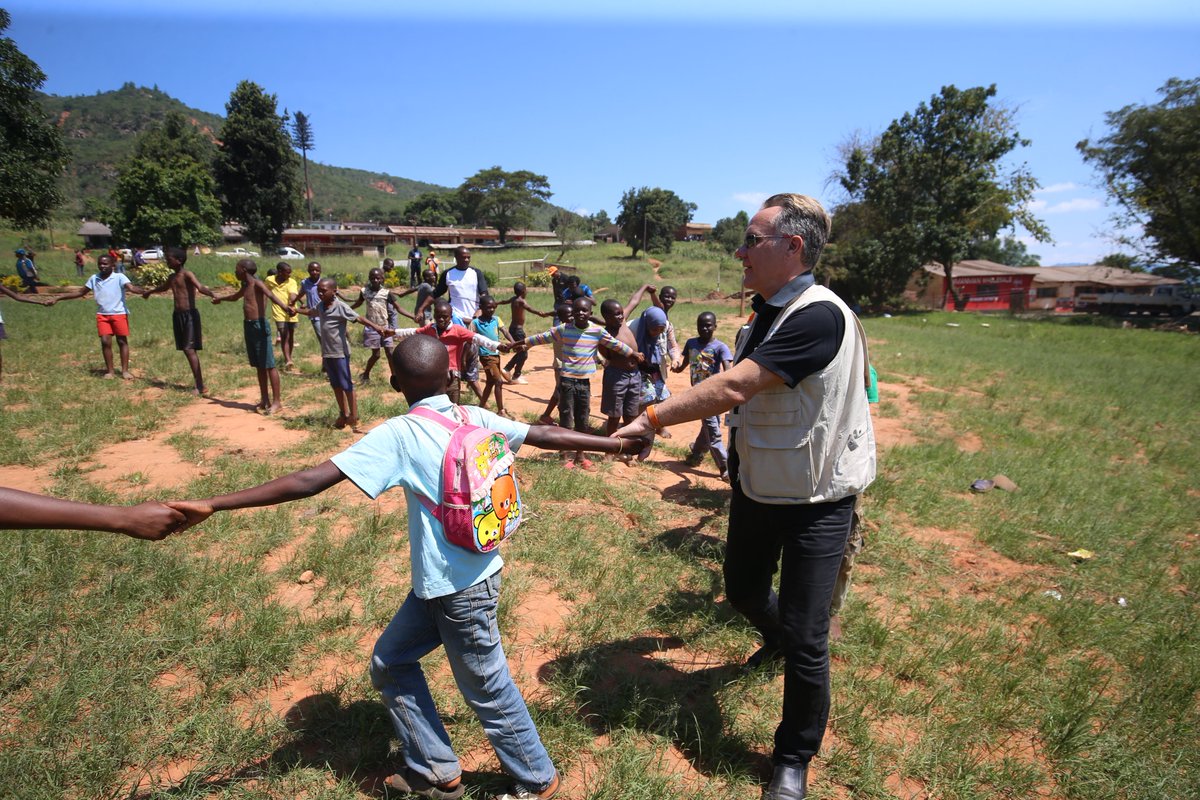Following the devastation in Zimbabwe caused by Cyclone Idai, the European Union has contributed €250,000 (US$ 281,035) to UNICEF to provide vital water, sanitation and hygiene (WASH) supplies to vulnerable children and families in flood-affected districts.
The cyclone affected some 270,000 people (half of them children) in the districts of Chimanimani and Chipinge, in Manicaland Province, creating an immediate need for safe drinking water, sanitation facilities and hygiene materials. With limited access to basic WASH services, pregnant women, young children, the elderly and people with disabilities are especially at risk of infectious diseases such as cholera and diarrhea.
Cyclone Idai flooding destroyed the water distribution system in affected areas, with some 13 pumping stations no longer functional and over 200 boreholes seriously damaged or swept away. Well over 100 schools lost access to sanitation facilities in areas where sanitation coverage was already low (43 per cent in Chipinge and 46 per cent in Chimanimani).
The EU contribution will support the distribution of water purification tablets and soap to households, schools and health institutions, the rehabilitation and repair of critical water supply networks, and where needed, the drilling of boreholes and the construction of new water points.
In addition, to promote good sanitation and hygiene practices in the affected areas, temporary sanitation and handwashing facilities are being set up at holding camps; participatory health and hygiene education and awareness is being conducted in communities; and refresher training with critical lifesaving water, sanitation and hygiene messages is taking place for environmental health technicians, village health workers and community health workers.
UNICEF works in some of the world’s toughest places, to reach the world’s most disadvantaged children. Across more than 190 countries and territories, it works for every child, everywhere, to build a better world for everyone.
The European Union and its Member States are the world’s leading donor of humanitarian aid. Relief assistance is an expression of European solidarity with people in need all around the world. It aims to save lives, prevent and alleviate human suffering, and safeguard the integrity and human dignity of populations affected by natural disasters and man-made crises.
Through its Civil Protection and Humanitarian aid Operations department (ECHO), the European Union helps millions of victims of conflict and disasters every year. With headquarters in Brussels and a global network of field offices, the EU provides assistance to the most vulnerable people on the basis of humanitarian needs, without discrimination of race, ethnic group, religion, gender, age, nationality or political affiliation.
